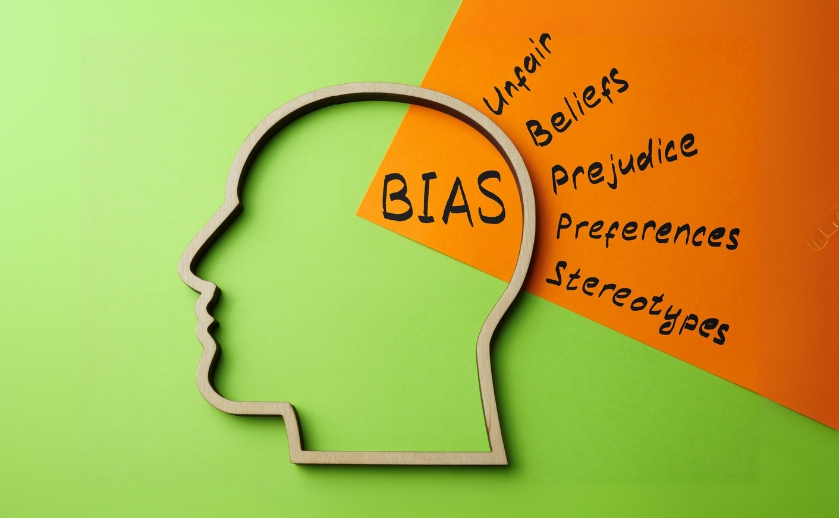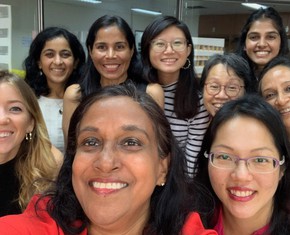The views expressed in our content reflect individual perspectives and do not represent the authoritative views of the Baha'i Faith.
A scientific study on biased motives asked a profound question: Why are so many conflicts so intractable when people on both sides could gain from a compromise?
You can probably think of many, many examples where this question might apply.
It applies not only to national and international conflicts, to ethnic and religious contention, and to polarized political clashes—it applies right at home, too, in our friendships, our work relationships, even our marriages and family dynamics. If you’ve ever had a long-running conflict with someone you care about, you know how hard compromise can be.
Interpersonal conflicts in those kinds of relationships, the science tells us, often have their roots in a biased mindset called “motive attribution asymmetry”—the prejudiced belief that my motives are good, but yours aren’t. A set of studies done at Princeton University showed that kind of bias can lead to hatred:
Hatred is a highly persistent and passionate dislike associated with a belief that the hated object is evil. Because hatred is associated with the belief that the other is bad in nature (i.e., is essentialized as evil), it leads to an inclination not to change the other but to separate from or destroy the other. – https://www.pnas.org/content/111/44/15687
Think about it for a moment, and ask yourself—do I have this kind of bias anywhere in my mind or heart? Do I believe anyone else is purely evil?
Of course we all have our biases, some of them harmful but others relatively harmless. You might be biased in favor of Indian food, Korean cars, or Scandinavian-style socialism; where someone else might have a bias against all three of those things. These personal preferences don’t usually generate intense conflict, but the Baha’i teachings tell us that other biases certainly do—gender bias, racial bias, patriotic bias or any number of other conflict-inducing prejudices:
… among the teachings of Baha’u’llah is that religious, racial, political, economic and patriotic prejudices destroy the edifice of humanity. As long as these prejudices prevail, the world of humanity will not have rest. For a period of 6,000 years history informs us about the world of humanity. During these 6,000 years the world of humanity has not been free from war, strife, murder and bloodthirstiness. In every period war has been waged in one country or another and that war was due to either religious prejudice, racial prejudice, political prejudice or patriotic prejudice. It has therefore been ascertained and proved that all prejudices are destructive of the human edifice. As long as these prejudices persist, the struggle for existence must remain dominant, and bloodthirstiness and rapacity continue. Therefore, even as was the case in the past, the world of humanity cannot be saved from the darkness of nature and cannot attain illumination except through the abandonment of prejudices and the acquisition of the morals of the Kingdom. – Abdu’l-Baha, Selections from the Writings of Abdu’l-Baha, p. 299.
The Baha’i teachings ask everyone to do something very difficult in regard to motive attribution asymmetry—to examine our inner motives and diligently and consciously root out any prejudice or bias we find there:
Man must be just. We must set aside bias and prejudice. We must abandon the imitations of ancestors and forefathers. We ourselves must investigate reality and be fair in judgment. – Abdu’l-Baha, The Promulgation of Universal Peace, p. 346.
… so long as prejudice—whether religious, racial, patriotic, political or sectarian—continues to exist among mankind, universal peace cannot become a reality in the world. From the earliest history of man down to the present time all the wars and bloodshed which have taken place were caused either by religious, racial, political or sectarian bias. – Ibid., p. 371.
… as to religious, racial, national and political bias: all these prejudices strike at the very root of human life; one and all they beget bloodshed, and the ruination of the world. So long as these prejudices survive, there will be continuous and fearsome wars. – Abdu’l-Baha, Selections from the Writings of Abdu’l-Baha, p. 248.
The Baha’i teachings put an enormous amount of emphasis on justice, and justice begins in the mind of every human being who has the ability to question their own motives, objectively investigate reality and set aside their own biases and prejudices. We all want justice to prevail in the world, but before we make that leap of societal progress, justice first has to prevail in our minds and hearts. Abdu’l-Baha made this precondition for justice clear when he outlined the qualities and characteristics of future members of a system of global governance, one of the primary aims of the Baha’i Faith:
Unquestionably there are certain conditions for the members of the Parliament of Man. The first condition for the acceptance of the members is that they must be entirely free from religious prejudices. Second they must be entirely free from national bias and patriotic prejudices. In fact, they must be free and quit of all kinds of prejudices. They must extricate themselves from all the passions and desires of the material world which brings man into the snares of struggle for existence. They must be turned at all times toward the immortal kingdom of the world of truth. For if they are not free from all these prejudices and if they are not turning their attention at all times toward the Kingdom of God, and if they are not wholly devoted to the well being of humanity, then they will not be able to reflect the truth and legislate just laws for all the children of men. – Abdu’l-Baha, Star of the West, Volume 9, pp. 708-709.
Once we begin to question our own biases and prejudices, we reach for true faith and justice, in our selves and in the world:
… the attributes of the people of faith are justice and fair-mindedness; forbearance and compassion and generosity; consideration for others; candor, trustworthiness, and loyalty; love and loving-kindness; devotion and determination and humanity. – Abdu’l-Baha, The Secret of Divine Civilization, p. 55.
















Comments
Sign in or create an account
Continue with Googleor